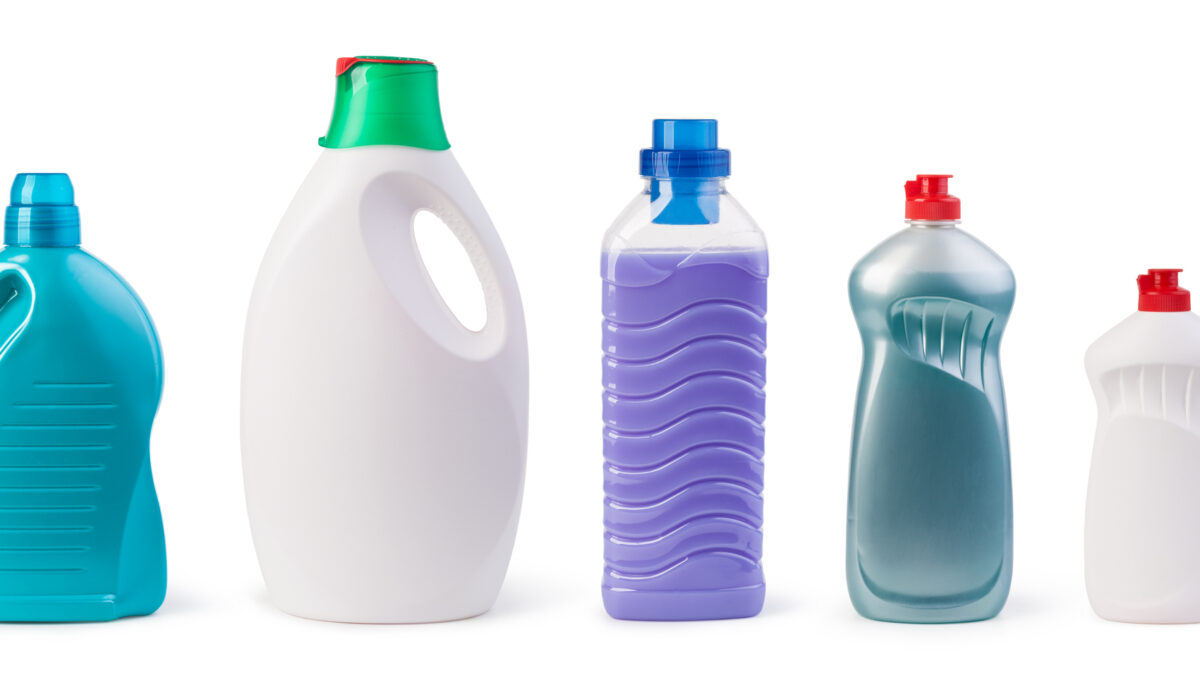
Types Of Plastic ♺
Types Of Plastic ♺ : There are countless amounts of plastic made materials in the modern world. We use and dispose of them so often that we sometimes forget that these plastics plague our environment daily. For us to have a more sustainable planet, we must know how to properly get rid of these plastics. But, it is not as simple as you think.
Did you know that some plastic differs from the other? All plastics are not the same. They are classified by their “plastic types”. Before you throw your bottled water, look at it first. Surely, you will see three “chasing arrows” forming into a triangle present there. Those arrows determine what kind of plastic it is. Now, which ones are recyclables and which ones are not? Read on to learn more.
>Download Now: Free PDF Business Owners Guide To Commingled Recycling Bin Services
A Bit About Waster
Before I discuss the types of plastic, let me share with you more information about Waster.
We here at Waster provide you with innovative solutions for you and your business’s waste management and recycling needs. Furthermore, we provide flexible, 30-day contracts instead of the typical lock-in contracts, which proves to be better.

Click on the blue button to learn more.
READ: Polyethylene Recycle Code ♺
The Different Types Of Plastic And Their Recyclability
As I have mentioned above, there are different types of plastic product. 7 of them exists, depending on their recyclability. Generally, the lower the number, the more it is likely to be recycled. Naturally, it is a must to know what these numbers enclosed in 3 triangular shaped symbol mean. The main advantage of knowing the type of plastic in your products includes easily determining whether you can recycle this type of plastic or not.
Types Enumerated
Here, I will enumerate and explain them one by one:
1. Polyethylene Terephthalate (PET/PETE)

You can usually find this type of plastic on common products like water and soda bottles, oil containers, and food packaging. You can put them in your kerbside recycling bin. PET usually costs cheap and can turn into a diverse range of products when recycled. Additionally, it is also lightweight, hence its convenience to everyday consumers. It can be turned into a number of products such as recycled plastic bottles and packaging or reprocessed into fibre for manufacturing textile products such as fleece garments and carpets.
Although high in demands by manufacturers because of its versatility, recycling rates for this plastic remains relatively low because of poor waste management practices by many people.
2. High-Density Polyethylene (HDPE)

As mentioned on my other blogs on plastic, HDPE is a strong type of plastic with high tensile strength. You can find it in your everyday items like shampoo bottles, shopping bags, motor oil bottles, and cereal box liners. You can also recycle them in your kerbside. Furthermore, with its versatility, it can turn into a wide array of recycled products. Facilities process them and send them to manufacturers that turn the processed HDPE into plastic lumbers, bed liners, and picnic tables.
But, even with its recyclability, some recycling facilities only allow containers with necks. Recycling programmes usually cannot process flimsy plastic such as grocery bags and plastic wrap.
3. Polyvinyl Chloride (PVC)
 This type of plastic can usually be found in toys, cling wrap, household cleaning bottles, and plumbing pipes, and windows. Additionally, it was the 2nd most used plastic after polyethylene, but not anymore because it can cause serious health risks and pollution. It contains BPA, known to disrupt an individual’s fertility. Some recycling programmes process them and the manufacturers turn them into flooring and panelling. But, it is best to keep away from using – much less recycling – this type of plastic. Read our blog on plastics affecting fertility for more information.
This type of plastic can usually be found in toys, cling wrap, household cleaning bottles, and plumbing pipes, and windows. Additionally, it was the 2nd most used plastic after polyethylene, but not anymore because it can cause serious health risks and pollution. It contains BPA, known to disrupt an individual’s fertility. Some recycling programmes process them and the manufacturers turn them into flooring and panelling. But, it is best to keep away from using – much less recycling – this type of plastic. Read our blog on plastics affecting fertility for more information.
4. Low-Density Polyethylene (LDPE)
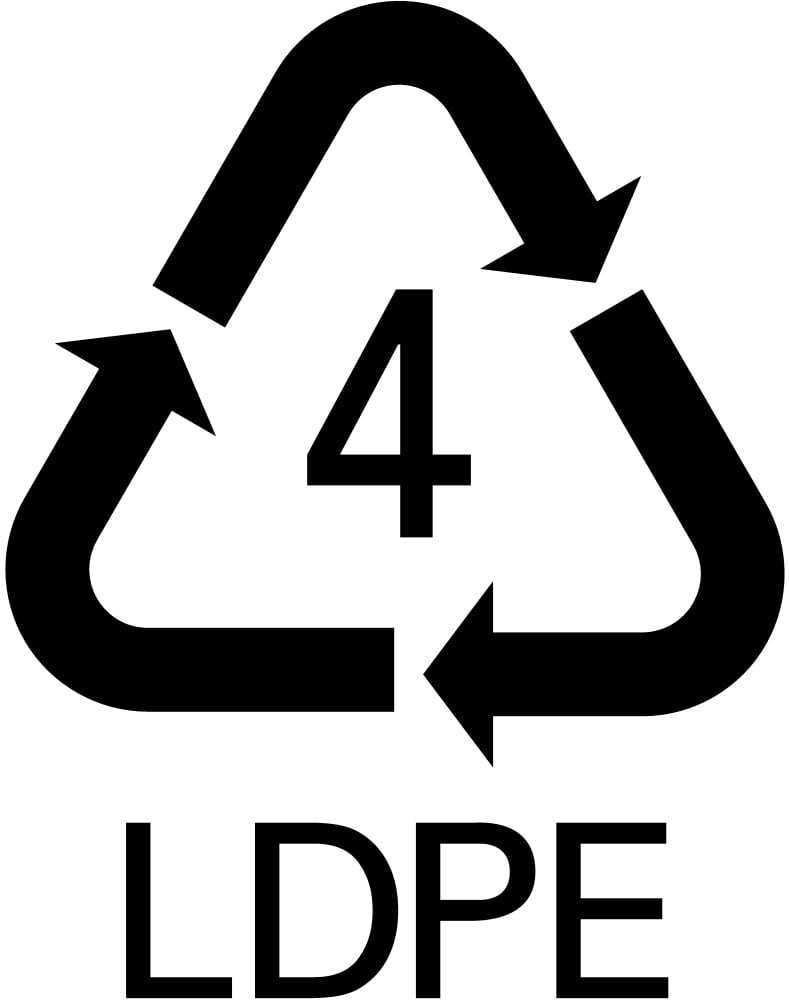
As the name suggests, this type of plastic contrasts HDPE. It is a flexible plastic that can usually be found in shrink wraps, frozen food containers, condiment bottles, and shopping bags. Generally, it is a safer plastic to use because of its low toxicity level. In the past, you would not find too many recycling facilities accepting this type of plastic, but in recent years, more programmes are equipping machinery and improving processes to recycle LDPE. Contact your local council first before dropping it in your recycling bin. In the event that they do not accept LDPE products, you can reuse them, instead.
5. Polypropylene (PP)
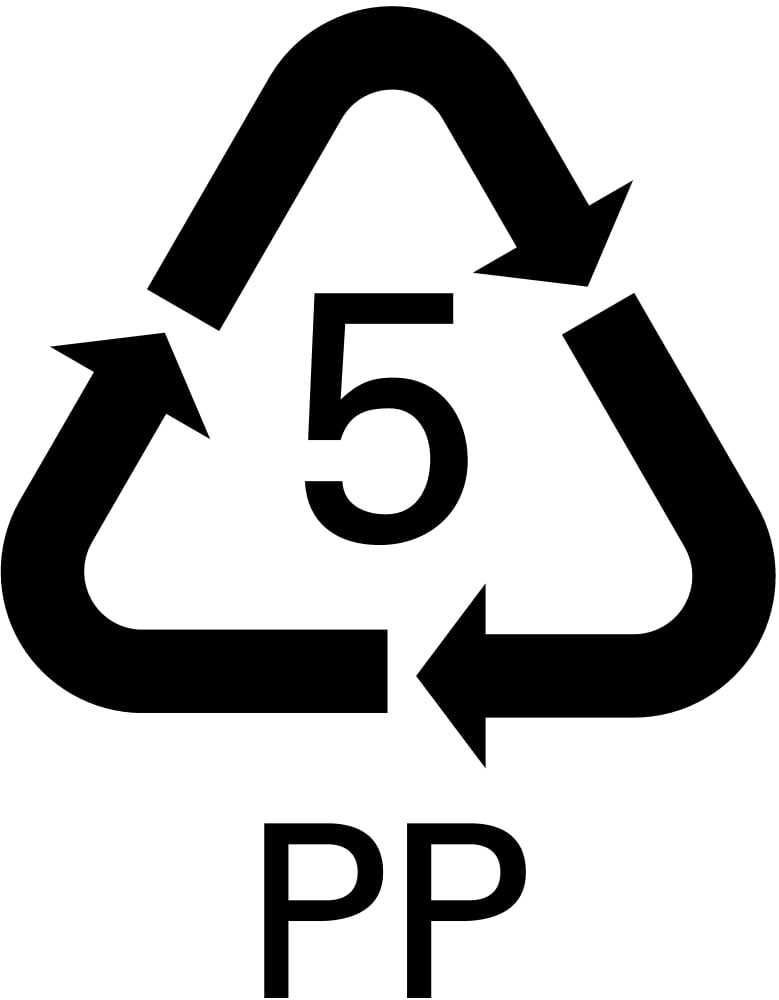
Heat-resistant, tough, and lightweight, polypropylene is usually used as a shield against moisture and harmful chemicals. Additionally, it also keeps cereals inside boxes fresh and dry. It is commonly found on items like medicine bottles, ketchup bottles, and Tupperware boxes. Some recycling programmes accept this type of plastic, while some don’t. If they do accept it, the facility recycles them into clothes, playground equipment, and ice scrapers.
Much like LDPE, you can also reuse them if your local council and recycling facility won’t accept your polypropylene plastic.
6. Polystyrene (PS)
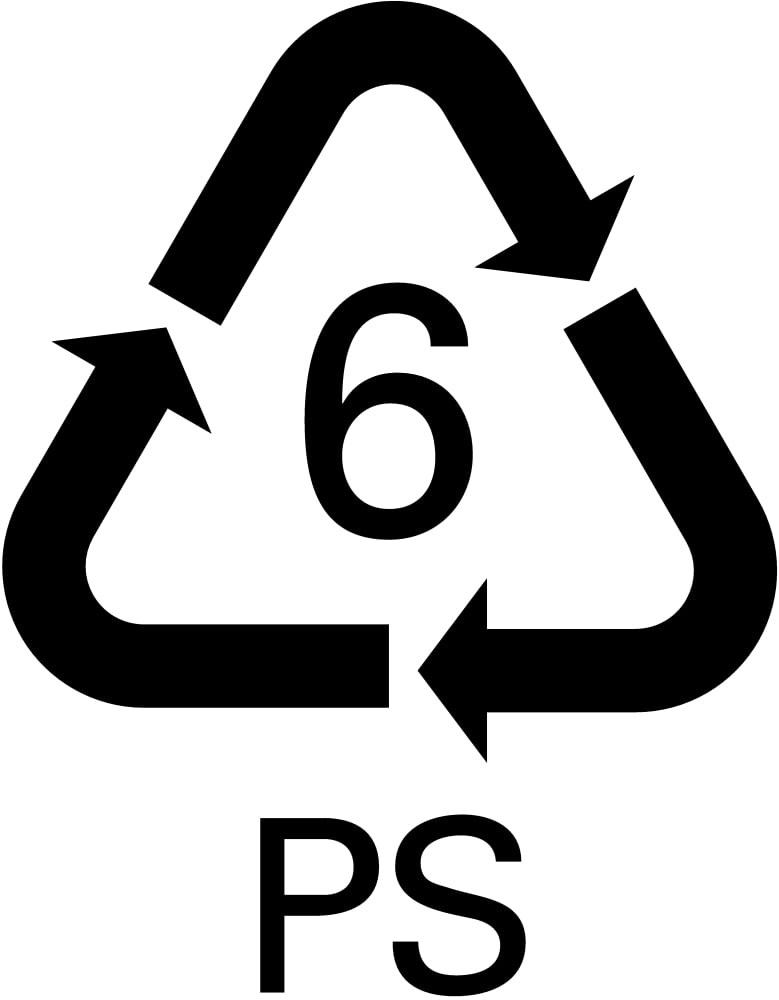
You may already know this type of plastic as styrofoam, a plastic in which we store our food. It is commonly found on egg cartons and takeaway coffee cups. Additionally, it is a dangerous plastic due to the possibility of it leaching toxins that can damage your nervous system. As a result of its toxicity, facilities usually would not accept this plastic. It is best to dispose of it properly.
7. Mixed Plastic (Other)
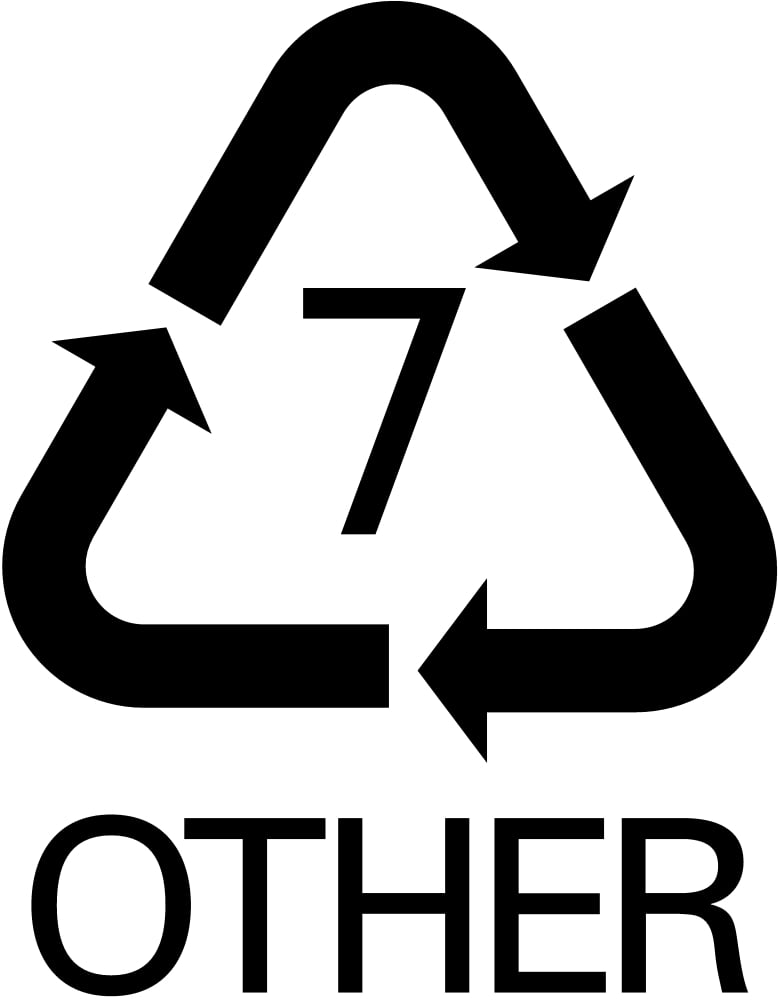
These mixed plastic do not fit into the previous types of plastics I mentioned above. Also termed as polycarbonate and “other” plastics, they are used to make baby bottles and car parts. Not only are they unrecyclable, but they are also unreusable because of its toxicity. It is best to avoid products with a label of number 7.
Types Of Plastic: Conclusion
Not all plastics are the same. Some are recyclable, while some are not. So, it is best to contact your local council first before recycling your plastic products.

Waster: Things You Need To Know
If you’re looking for recycling bins, check our waste recycling shop and find the best deals in terms of pricing and services.
Also, please call 1300 WASTER (1300 927 837), or email us at enquiries@waster.com.au if you have any further questions.

Leave a Reply Cancel reply

Product categories
Most Popular Posts
-
Commercial Waste Management Services: Reduce Waste Collection Costs! 🚍
-
Medical Waste Disposal: Everything You Need To Find Out In 2024! 💉
-
Rubbish Removal Sydney 2024: Better Bin Collections For Business ✅
-
Clinical Waste Disposal 2024: What To Know About Business Clinical Waste ⚕️
-
Secure Document Destruction 2024: All About Security Bins Shredding 🔒
-
Free Cardboard Recycling 2024: Can I Get Free Cardboard Collection? 📦
-
Confidential Paper Disposal Bins 2024: What You Need To Know About Shredding! 🔒
-
Recycling Bins Australia 2024: Recycling Can Boost Your Profits! ♲
-
Commercial Wheelie Bin Collection: What Businesses Need To Know In 2024 🗑️
-
Commingled Recycling 2024: Why Commingled Bin Is Key To Recycling 🍾












